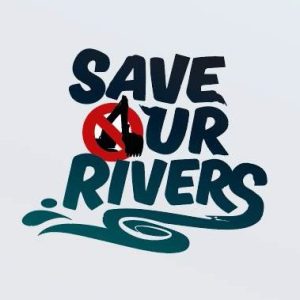 By Hajira Khota
By Hajira Khota
22:09:2021
Hundreds of millions of litres of sewage, industrial, and pharmaceutical waste are dumped into our rivers and oceans each year.
Recently, almost 1 200 kilos of rubbish was collected at the mouth of the Umgeni River in Durban, KZN. The waste was analysed and evaluated as part of international research undertaken by the Ocean Conservancy, a non-profit environmental advocacy organisation based in the United States.
The garbage data collected in Umgeni was regarded as “shocking” by Janet Simpkins, director of the non-profit Adopt-a-River, who spoke to Radio Islam International.
She stated the trash included anything from thousands of flip-flops to plastic bottles, disposal masks and sewerage.
“Over 40 kilos of flip-flops were collected”.
She added that she did not expect an easy solution in such a bureaucratic atmosphere, during frequent malfunctions at wastewater treatment plants and pump stations and canoeists who avoid clumps of sewage output that pour into the Umgeni.
Sea Disposal of Sewage: Environmental Surveys in the Durban Outfalls Region”, the Council for Scientific and Industrial Research (CSIR) has said in a statement that wastewater contains a variety of substances (such as metals), bacteria, and viruses that can harm the ecological health of the sea and offer a health risk to humans while swimming or collecting resources from the sea, such as fish.
Rivers are open systems in which material and energy are constantly exchanged throughout the environment. Rivers are essential routes for the movement of energy and the circulation of nutrients across habitat boundaries; treating them as ecosystems is complex.
A river catchment investigation was launched with Save Our Rivers, leading a prototype clean-up team at the Umgeni River mouth on ADreach’s behalf.
Simpkins stated, “We cannot afford to let our rivers deteriorate and possibly collapse by exploiting them as garbage management systems.”
[LISTEN] to the interview here







0 Comments